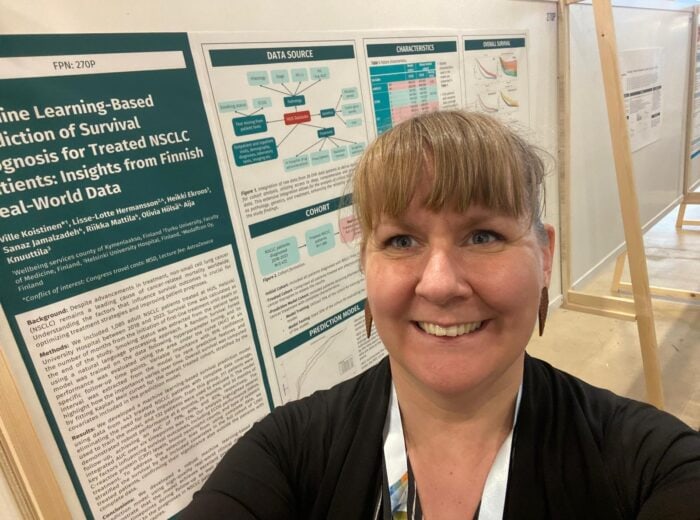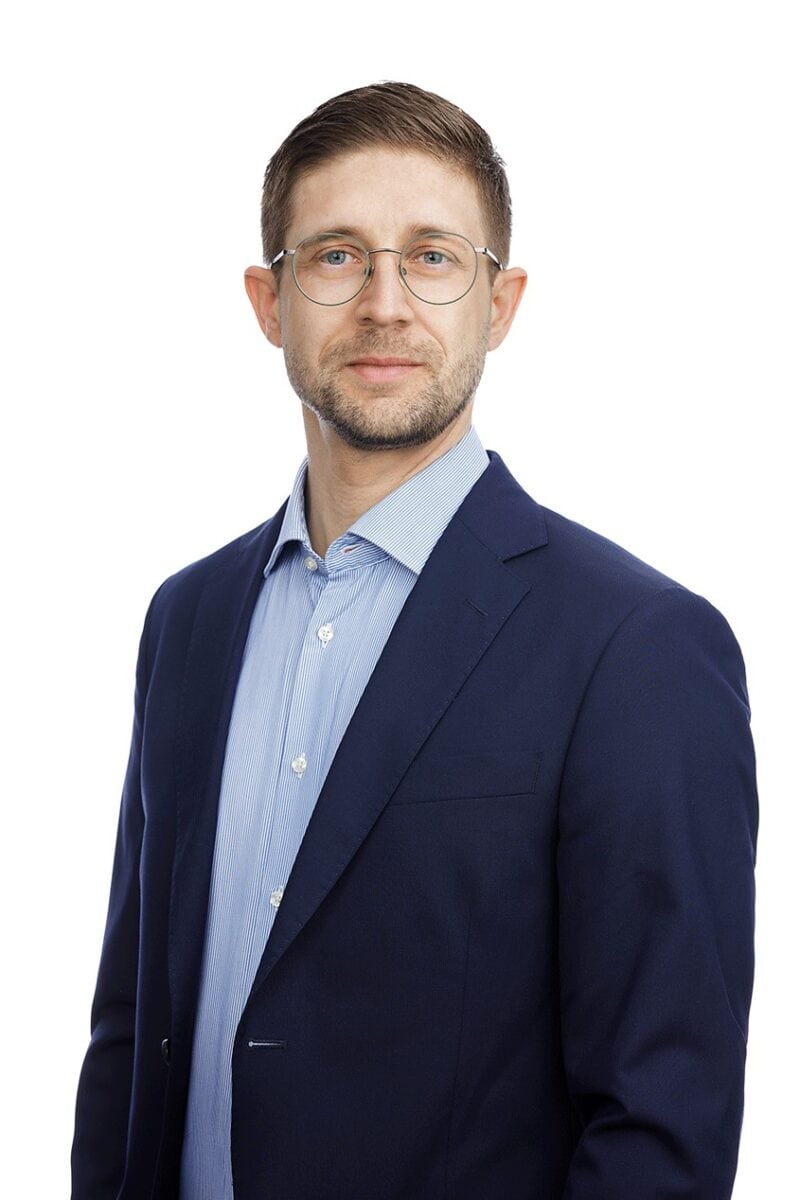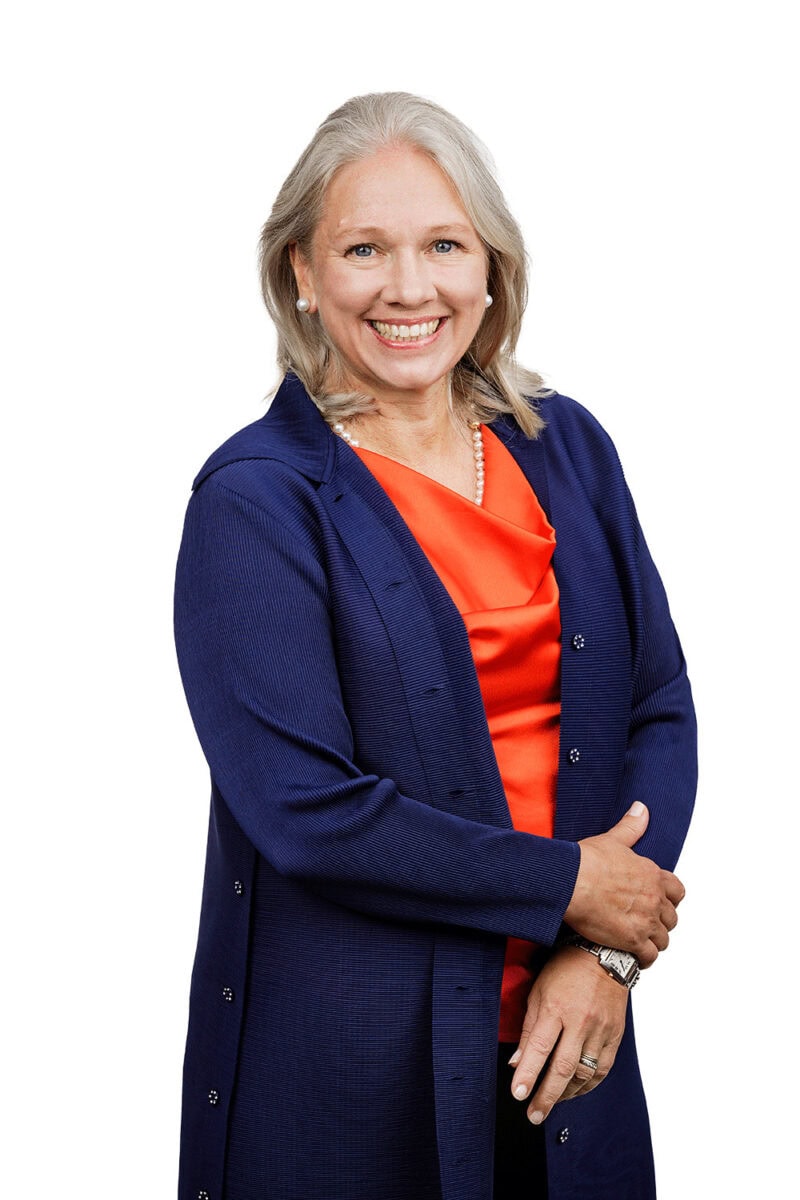Medaffcon Presented Insights from Finnish Real-World Data at European Lung Cancer Congress
Medaffcon's European Lung Cancer Congress (ELCC) poster showcased key findings from a recent study on non-small cell lung cancer (NSCLC).
Johan Rehnberg started working as a Scientific Advisor at Medaffcon’s Swedish office in August 2024. He is a dynamic researcher who values opportunities to learn new things and develop his skills – opportunities that Medaffcon provides.
As a Scientific Advisor, Rehnberg designs and conducts RWE (Real-World Evidence) studies for Medaffcon’s clients. Additionally, he has had the opportunity to work on Market Access applications, where he has been able to leverage the expertise that he gained in his previous role at TLV in Sweden (the Dental and Pharmaceutical Benefits Agency).
At TLV, Rehnberg worked as a medical assessor. That has been very useful for his work at Medaffcon.
“I learned how authorities and pharmaceutical companies utilize real-world evidence in health economic models to get market access for their products.” Rehnberg explains.
Before joining TLV, he worked as a researcher at the Aging Research Center at Karolinska Institutet and Stockholm University. He first completed his doctoral dissertation and then continued with two two-year postdoctoral research positions. One of these was an international project that he was awarded funding for, collaborating with and visiting researchers at the Amsterdam UMC (University Medical Center).
In his research, Rehnberg focused on public health and epidemiology, particularly aging research, epidemiological research methods and national health-register studies. His academic background also includes studies in sociology, economic history, and statistics.
“I enjoy analyzing problems and figuring out how best to utilize information to solve them. That’s the essence of research,” Rehnberg says.
Rehnberg ended up in the healthcare research field by chance – an opportunity he describes as fortunate.
“I have been happy with my choice. This field produces practical results with direct societal impact. The goal is to improve people’s lives,” he says.
When he joined Medaffcon, the company had just begun expanding into the Swedish and Nordic markets.
“What I enjoy most about my work is tackling different challenges and applying the skills I learned as an academic researcher. This job offers me the opportunity to grow and develop my expertise in many different areas.”
According to Rehnberg, one of the biggest challenges in RWE research is the scale of the projects. Timelines are often dependent on external factors, such as whether authorities and regional data holders in Sweden and other Nordic countries grant access to their data.
“Even though both we and our clients do our best, things don’t always go as planned. Predicting outcomes is always difficult, and sometimes you just must accept uncertainty. RWE studies are long-term projects, often taking two years or more,” he explains.
Currently, he is working on multiple projects focused on gathering data from different data holders in Sweden.
“At the moment I am in contact with different data holders in Sweden almost daily, working to secure access to the data we need for our projects.”
Medaffcon, founded in 2009, is a Nordic research and consulting company specializing in Real-World Evidence, Medical Affairs, and Market Access. With offices in Stockholm, Sweden, and Espoo, Finland, we provide expert services across the Nordic region. Our services combine strong medical and health economic expertise with modern data science.
The company employs some 30 experts. Since 2017, Medaffcon has been a subsidiary of Tamro Oyj and is part of the PHOENIX group, which is a leading provider of healthcare services in Europe.

Medaffcon's European Lung Cancer Congress (ELCC) poster showcased key findings from a recent study on non-small cell lung cancer (NSCLC).

The algorithm was originally developed to extract smoking status from patient texts with purpose to analyze the effects of smoking on postoperative complications. Today, it is also being utilized in lung cancer research.

Asthma and antibiotic use are linked to a higher risk of revision surgery in patients with chronic rhinosinusitis with nasal polyps (CRSwNP). This finding is based on a real-world evidence (RWE) study published in February.

Scientific Advisor
PhD
Johan joined Medaffcon in August 2024. He holds a PhD in Public Health and in 2023 he completed a four-year postdoctoral research position at Karolinska Institutet, where he led an international research project in collaboration with researchers from Amsterdam University Medical Center (UMC).
In 2023, Johan transitioned from academia to a role as a medical assessor at the Swedish Dental and Pharmaceutical Benefits Agency (TLV), where he gained valuable insights into the processes involved in bringing pharmaceutical products to the Swedish market.
Johan’s strengths lie in his decade-long research experience within multidisciplinary environments at both Karolinska Institutet and Stockholm University. He has extensive experience working with Swedish and Nordic health register data, which, combined with his regulatory knowledge from TLV, makes him well-equipped for planning and conducting RWE studies in Sweden.
“I am excited to continue leveraging the high-quality health registers available in the Nordics to generate valuable insights. These insights will empower patients, healthcare providers, and pharmaceutical companies to make more informed, evidence-based decisions.”

Country Director Sweden
M.Sc (Econ.) & M.Sc (Health Econ)
+46 73 447 47 27
lisse-lotte.hermansson@medaffcon.se
Lisse-Lotte started at Medaffcon 1st of October 2024. Previously she was at a Swedish-German company as CSO Chief Scientific Officer, consulting European companies about Nordic health data opportunities and market access. She has a M.Sc (Econ.) from Helsingin School of Economics and a M.Sc (Health Econ) from Karolinska. Additionally a Ph.D student at the University of Turku in Health Economics. She has obtained a long experience from global pharma and medtech. She has lived over 20 years in Sweden.
The current development gives new possibilities to utilise data. With AI we can produce synthetic data and build digital twins that can actually support drug development and support healthcare providers. Innovative solutions are only useful if they are adopted to daily practice.
Old ways of working will vanish and RWD will be acknowledged as an excellent option or support for RCTs. As RWD is enabling more cost-effective evidence generation for new treatments. Treatments need to be more personalised so that the right drugs, diagnostics and devices are used for the right patients at the right time.